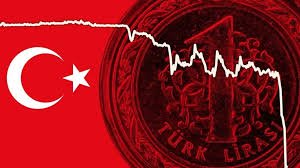Huseyin Goksoy, a tailor who was so stressed about going hungry during the worst of the COVID-19 pandemic that he was briefly bedridden with a hernia, is increasingly worried about his future as Turkey strains to curb poverty.
He is not alone.
Though a two-month lockdown ended in June, about four million Turks still rely on state aid to get by, while even more informal workers missed out on most of the financial support.
Polls and academic research paint a grim picture ahead of the day when President Tayyip Erdogan’s government is expected to lift a temporary ban on layoffs, possibly as soon as November.
Goksoy, 48, makes face masks to help cover losses from earlier this year when he could not get a subsidized small-business loan because there was no guarantor in his conservative neighborhood in central Istanbul.
“People don’t get dressed up when they don’t work, so I only repaired tears and it was 5-10 liras ($1) a day – if that,” he said. “I still can’t send money to my kids when they want it. If I do a bad job, I’d go hungry.”
Data and polls show that fear and disillusionment like this are unprecedented across the labor market. Those hardest hit are the same Turks who benefited from years of Erdogan’s welfare policies that helped to sharply reduce income inequalities.
MED7: Full support to Greece & Cyprus – Warning of sanctions on Turkey
How to steal an election – Analysis
Read more: Reuters
Ask me anything
Explore related questions





